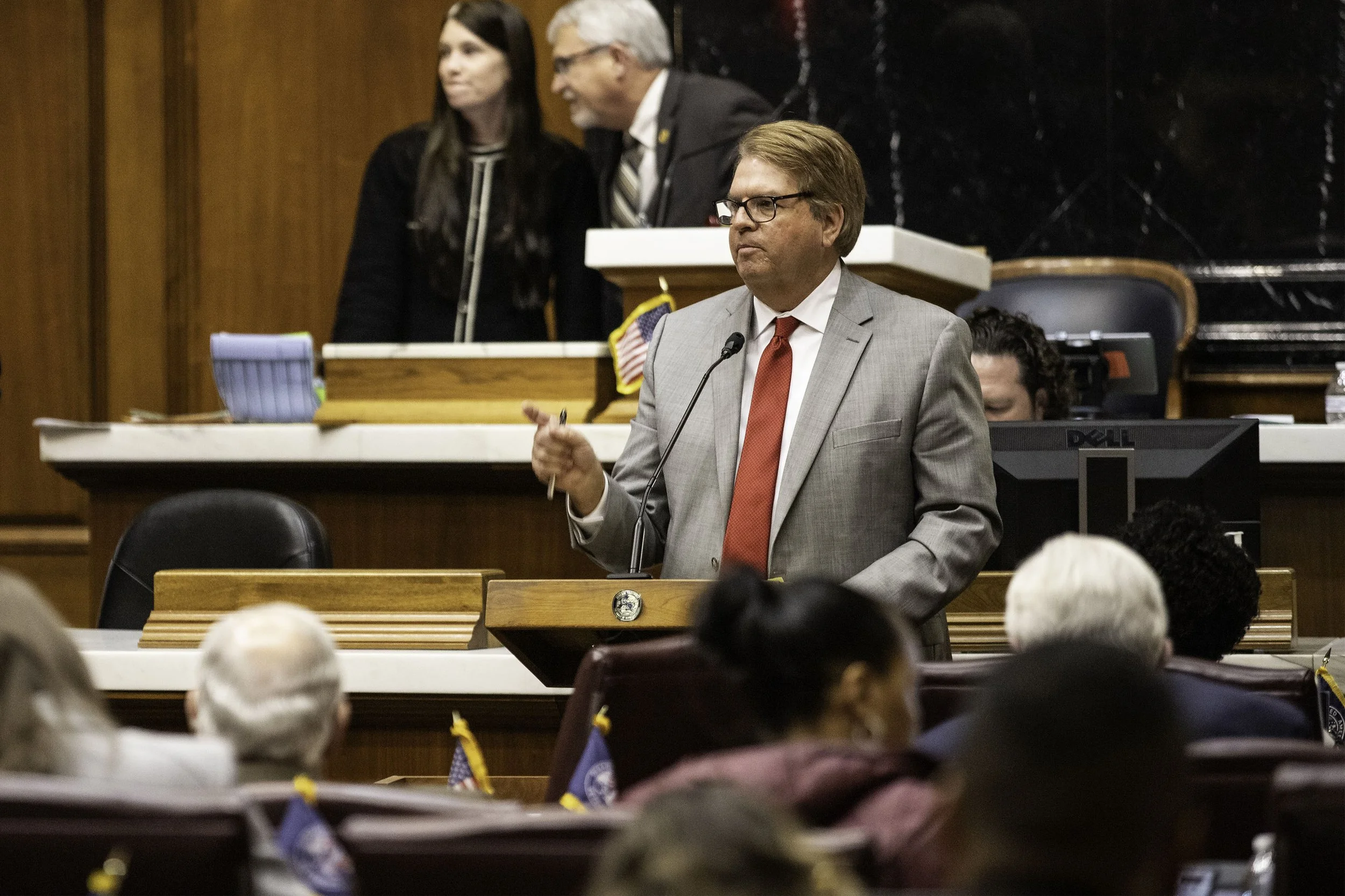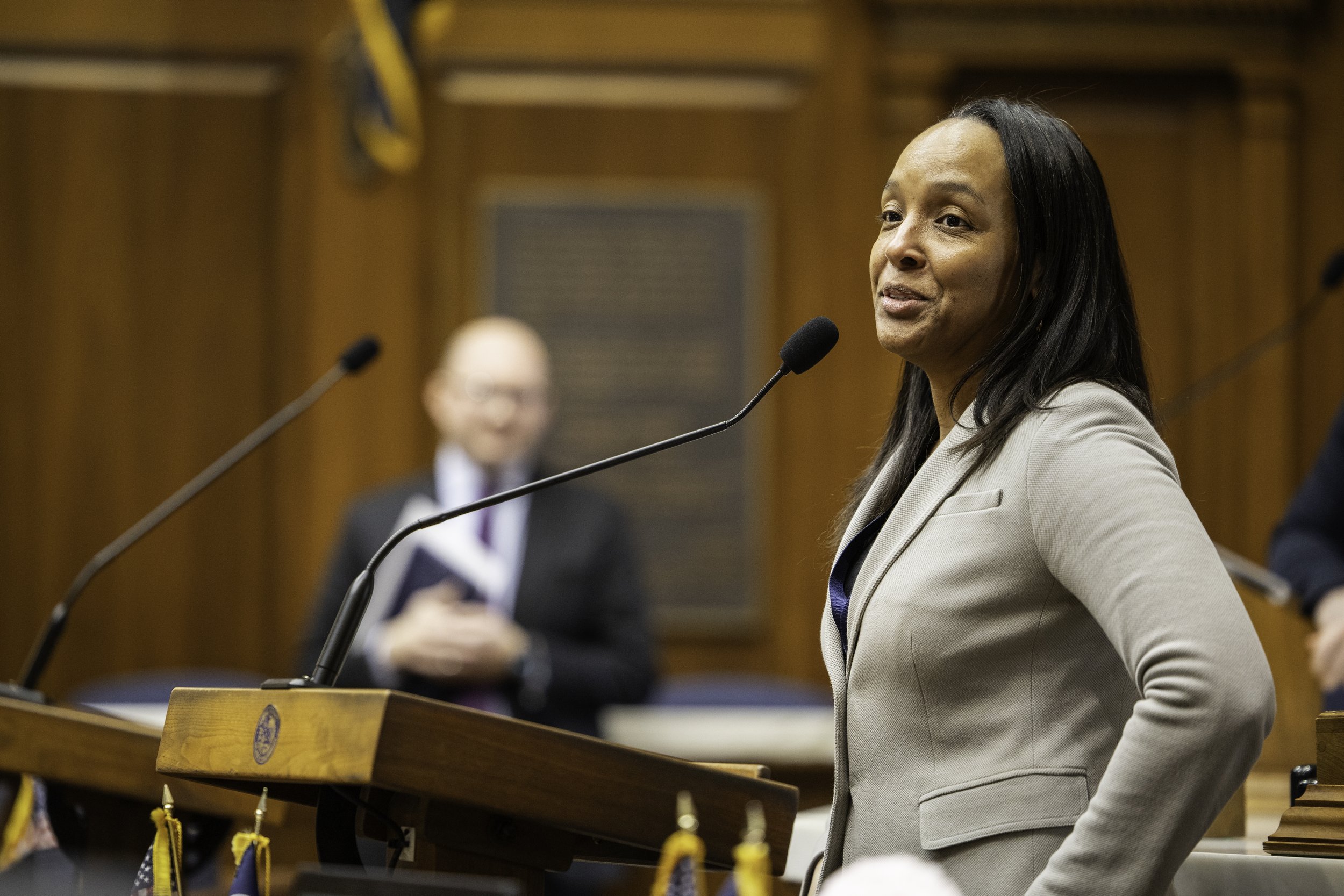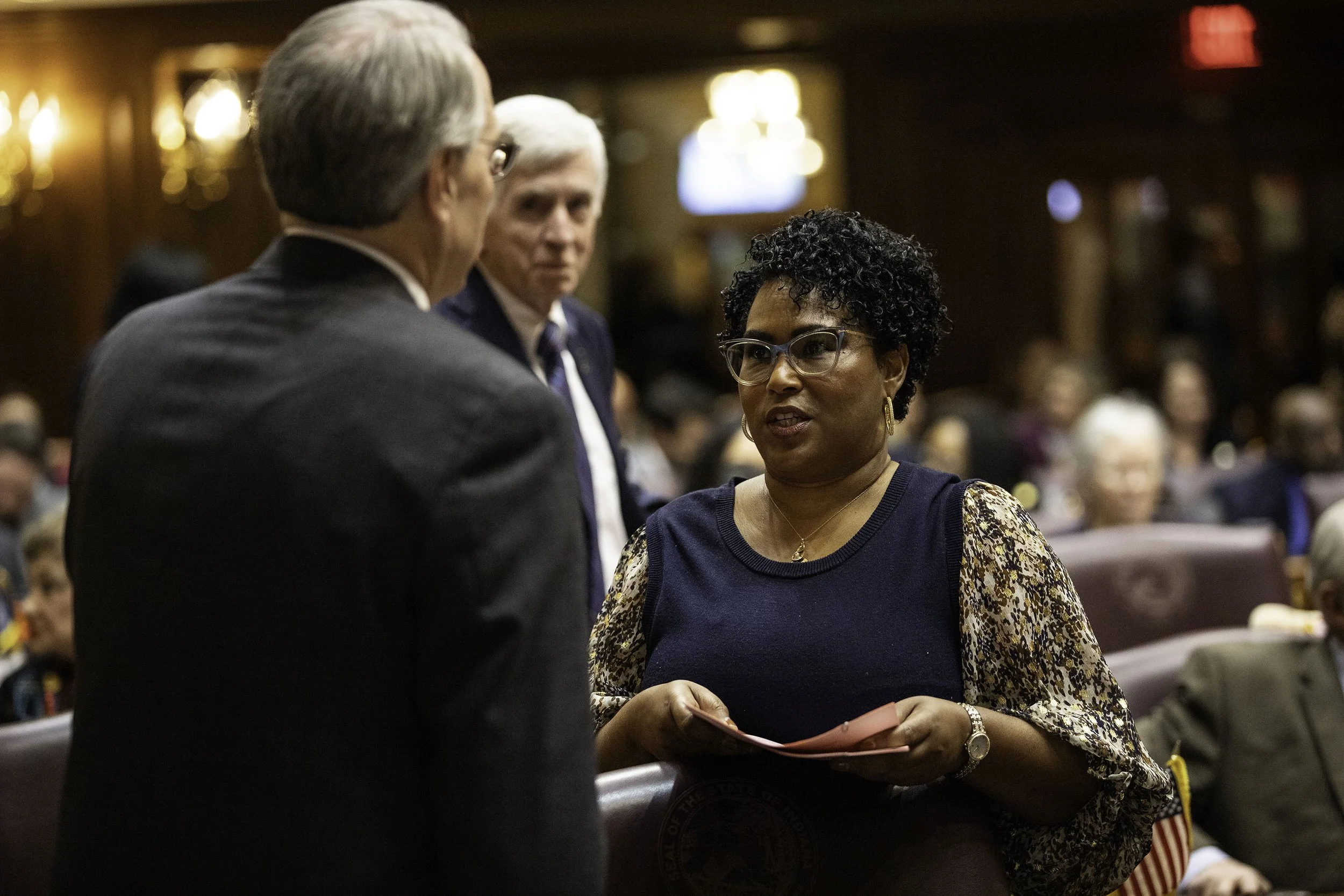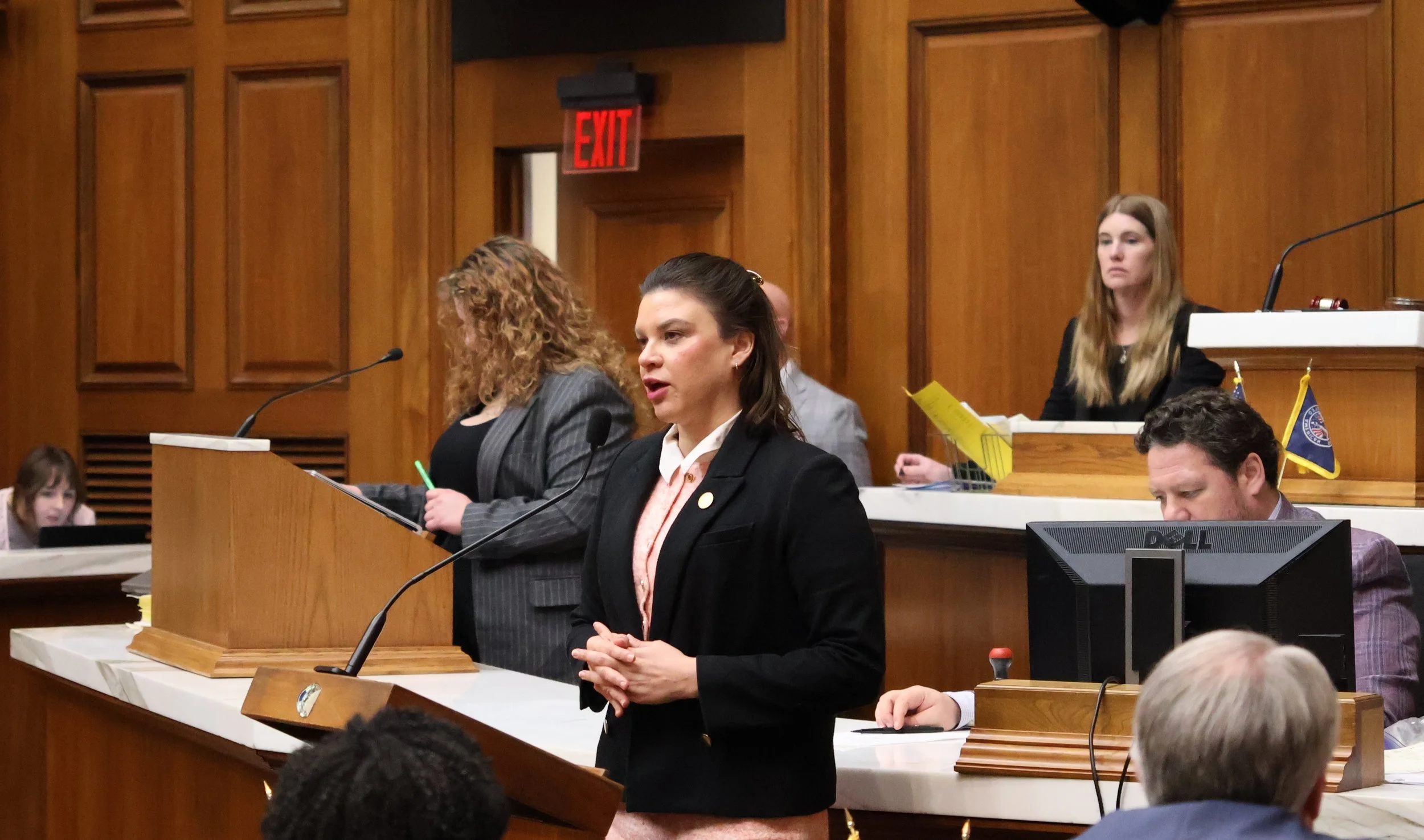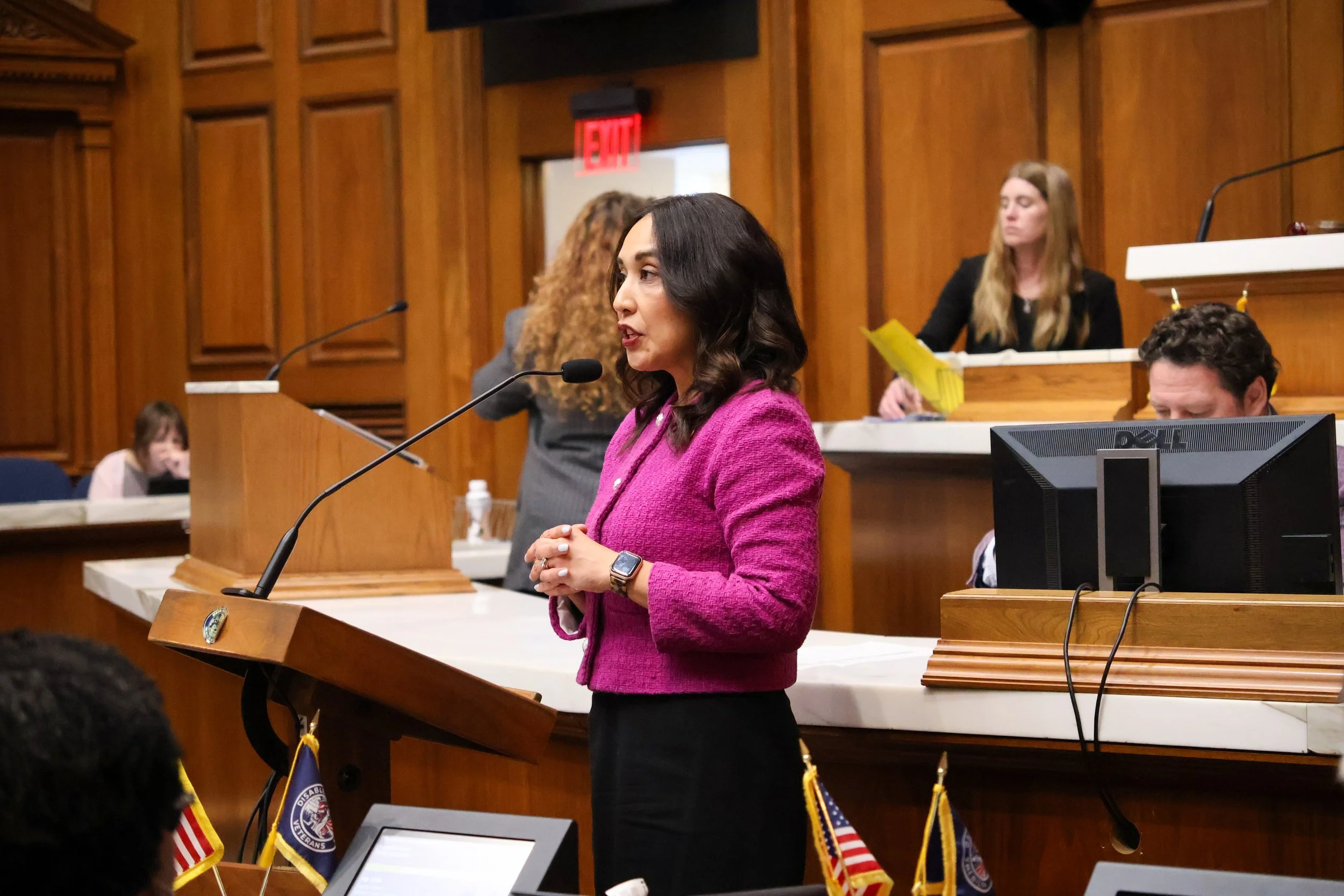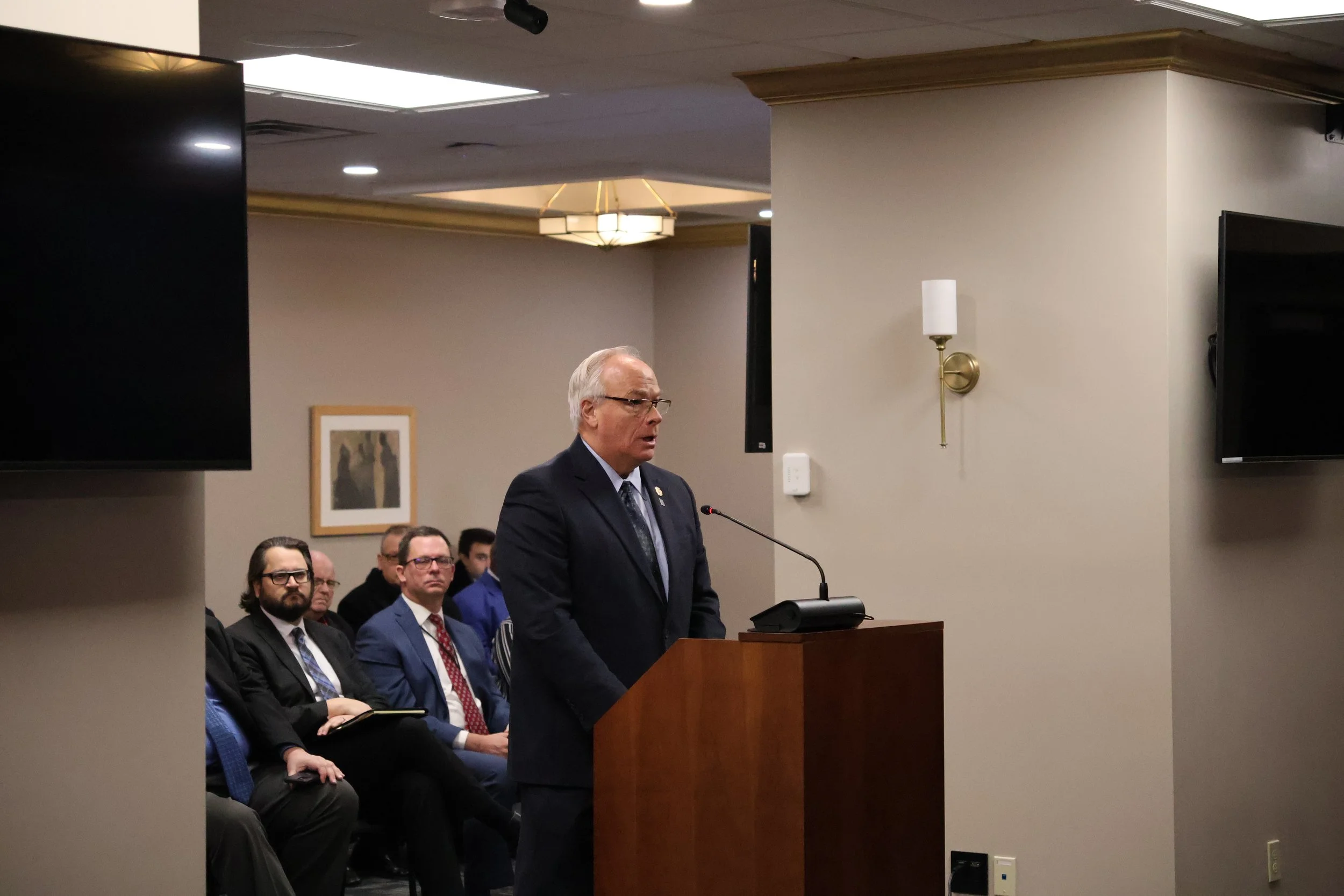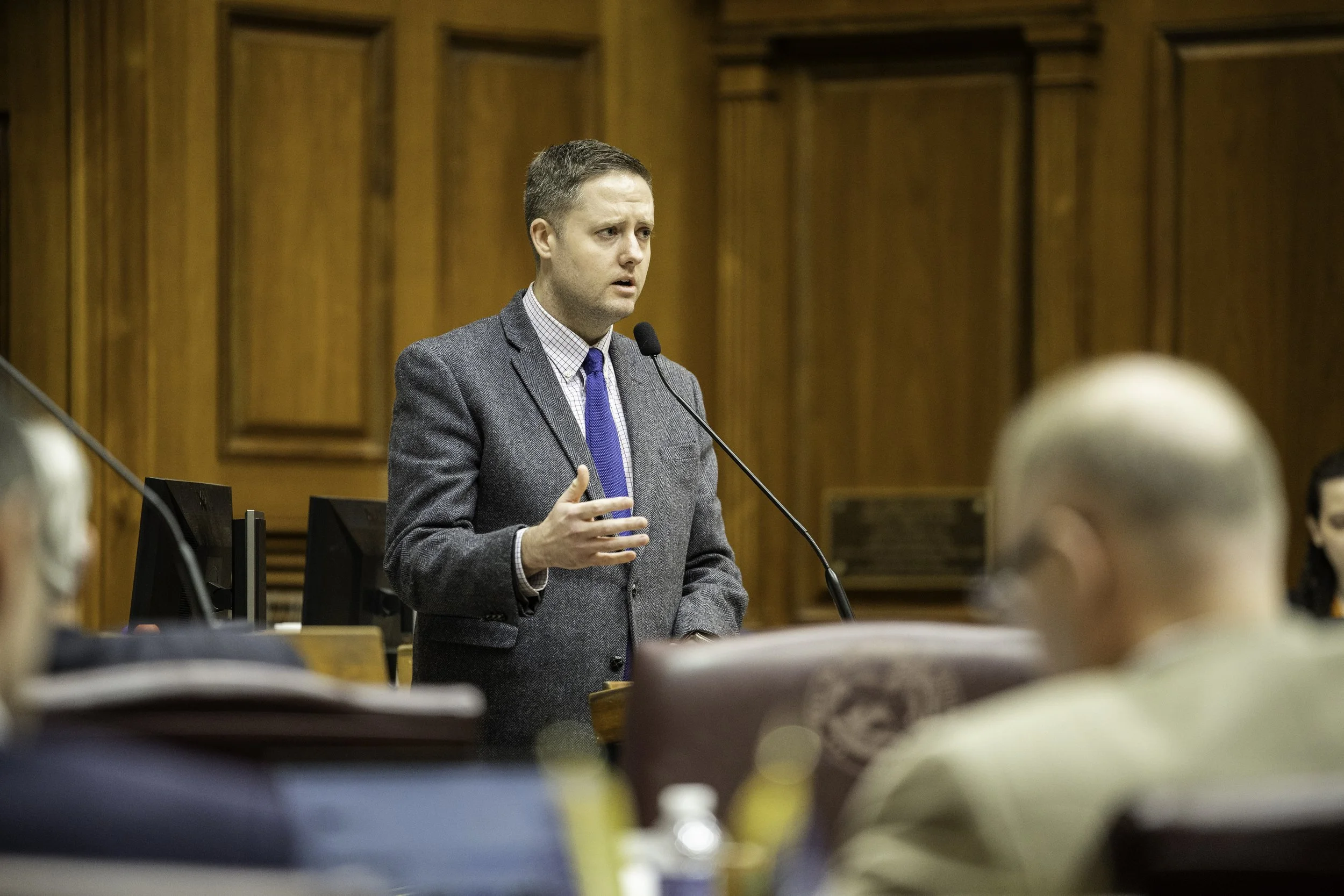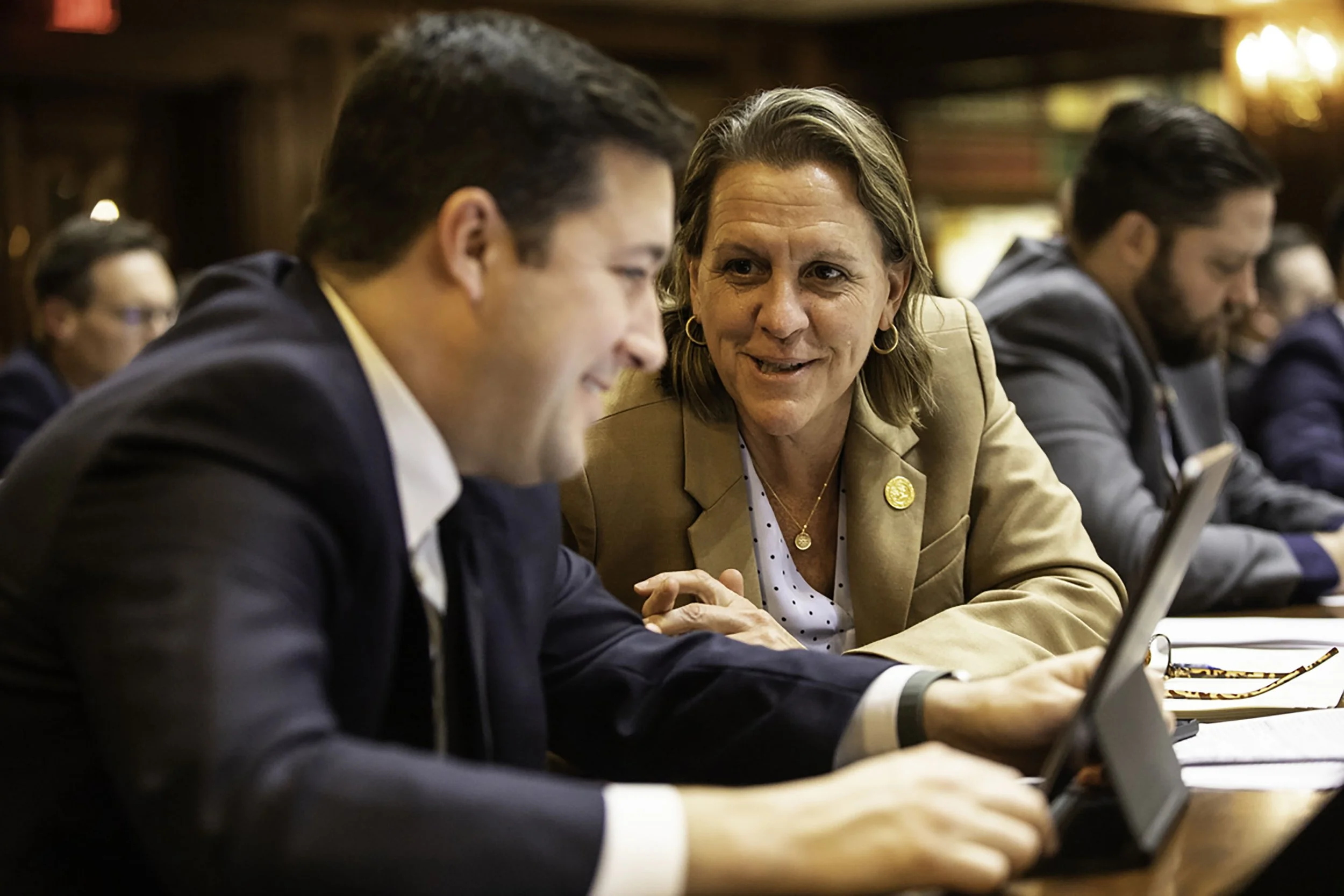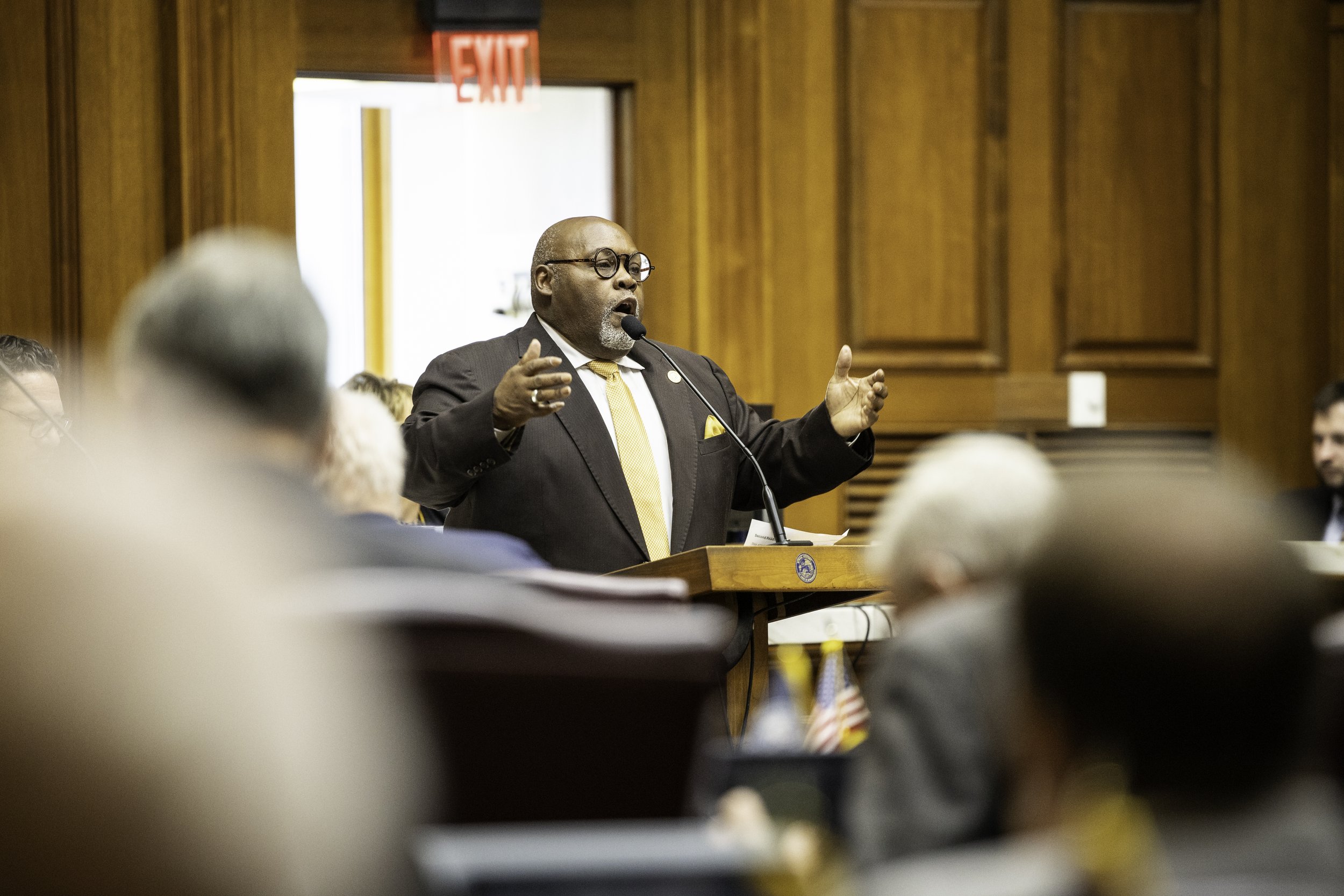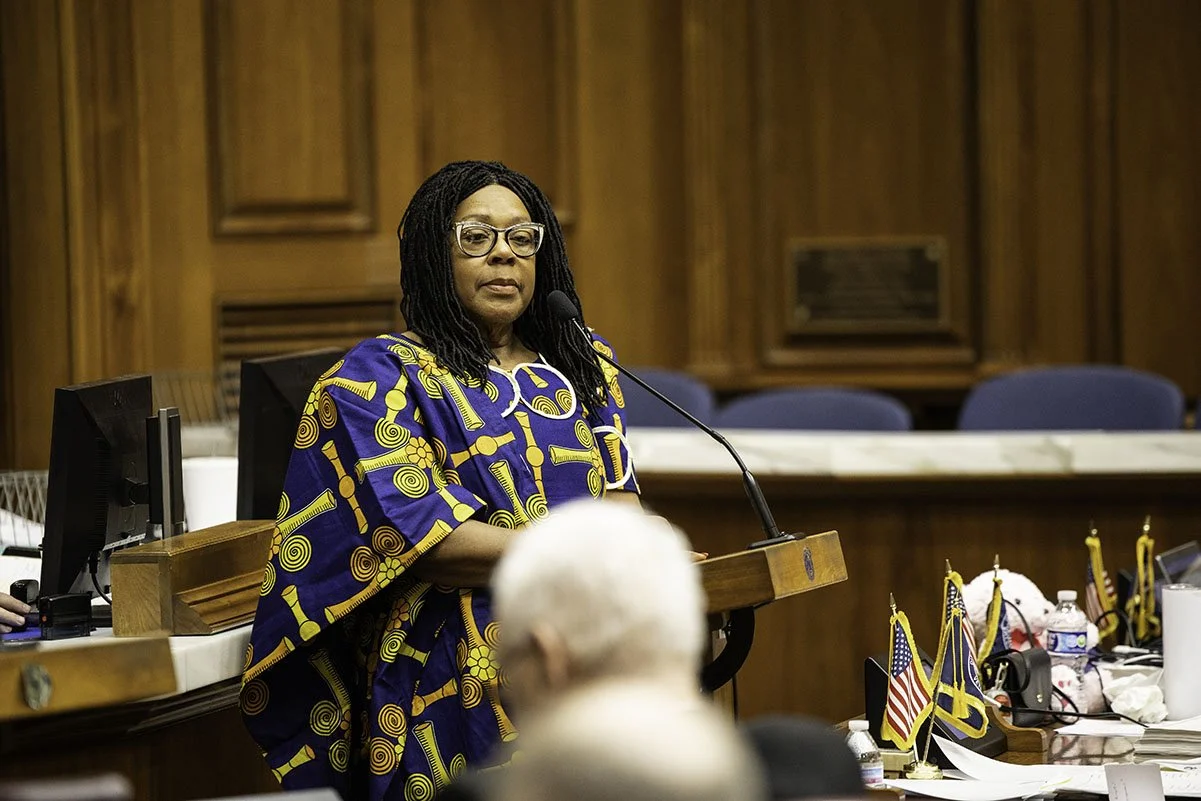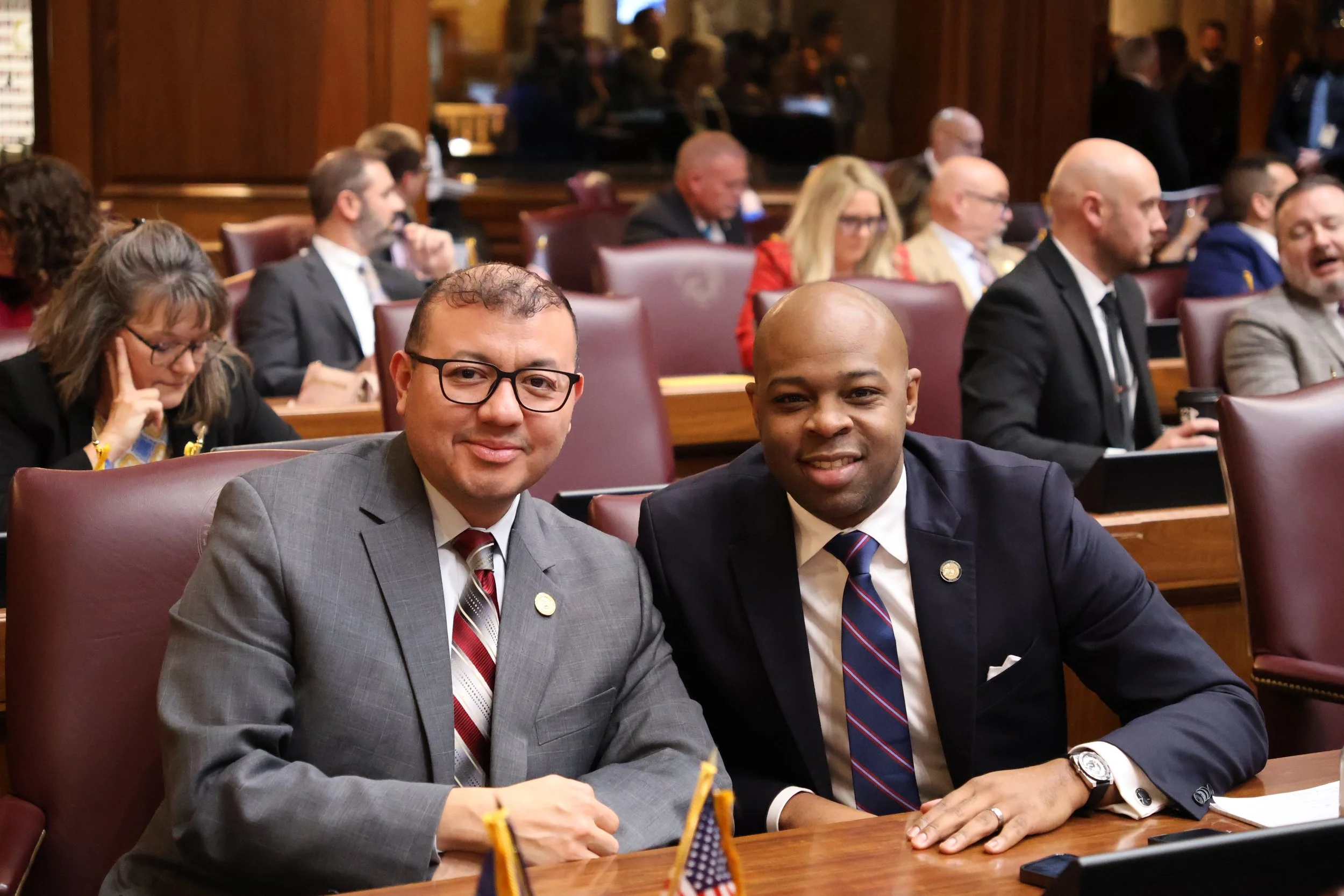Latest News
Find our archive of news distributions below. To request a media interview or statement from one of our members, visit our press inquiries page here.
Search Our Press Release Archive
Sort by Rep. or Topic
- Economy
- Education
- IBLC
- Leadership
- Mental Health
- Public Safety
- Rep Renee Pack
- Rep. Alex Burton
- Rep. Blake Johnson
- Rep. Carey Hamilton
- Rep. Carolyn Jackson
- Rep. Cherrish Pryor
- Rep. Chris Campbell
- Rep. Chuck Moseley
- Rep. Dant Chesser
- Rep. Earl Harris Jr.
- Rep. Ed DeLaney
- Rep. Gregory W. Porter
- Rep. John Bartlett
- Rep. Justin Moed
- Rep. Kyle Miller
- Rep. Matt Pierce
- Rep. Maureen Bauer
- Rep. Mike Andrade
- Rep. Mitch Gore
- Rep. Pat Boy
- Rep. Phil GiaQuinta
- Rep. Ragen Hatcher
- Rep. Randy Novak
- Rep. Renee Pack
- Rep. Robin Shackleford
- Rep. Ryan Dvorak
- Rep. Sheila Klinker
- Rep. Sue Errington
- Rep. Tonya Pfaff
- Rep. Vanessa Summers
- Rep. Vernon Smith
- Rep. Victoria Garcia Wilburn
- Rep. Wendy Dant Chesser
GiaQuinta mourns “Hoosier hero” Rep. Lee Hamilton
Former Democratic United States Rep. Lee Hamilton died Feb. 3 in Bloomington, Indiana at the age of 94.
Former Democratic United States Rep. Lee Hamilton died Feb. 3 in Bloomington, Indiana at the age of 94. He served Indiana's ninth congressional district in the United States House of Representatives from 1965-1999. Indiana House Democratic Leader Phil GiaQuinta (D-Fort Wayne) issued the following statement regarding Hamilton's passing:
"Rep. Lee Hamilton was a Hoosier hero who dedicated his life to service and bolstering national security. Throughout his 34 years serving in Congress Rep. Hamilton worked across the aisle for the benefit of his fellow Americans, something politicians from our city halls to the halls of Congress should always strive to do. As a lawmaker, Hamilton dedicated much of his work in D.C. and after leaving Congress toward strengthening American democracy through civic engagement.
"After he left Congress in 1999, his work still wasn't done. In 2002, former President George W. Bush appointed Hamilton as the vice-chairman of the 9/11 Commission. He also went on to start the Indiana University Center on Representative Government as the Center on Congress in 1999. From Washington, D.C. to Bloomington, Rep. Hamilton's dedication to public service has made Indiana, and our nation, stronger."
Hatcher thankful for the defeat of bill legalizing execution by firing squad
On Tuesday, Jan. 27, House Bill 1119 failed to pass with a constitutional majority with a vote of 48 to 47. The bill was not called down again before the third reading deadline, defeating the legislation. If passed, HB 1119 would have legalized the use of firing squads to carry out the death penalty.
On Tuesday, Jan. 27, House Bill 1119 failed to pass with a constitutional majority with a vote of 48 to 47. The bill was not called down again before the third reading deadline, defeating the legislation. If passed, HB 1119 would have legalized the use of firing squads to carry out the death penalty.
State Rep. Ragen Hatcher (D-Gary) issued the following statement:
“As a former prosecutor, I’m thankful this bill failed. It has no place in our justice system, which is centered on a mutual respect for human life. Our justice system isn’t about retribution.
“The death penalty is a flawed, irrevocable practice. Race, socioeconomic class and the skill of an attorney all play a role in every conviction. Our justice system isn’t perfect. The system isn’t immune to bias or mistakes, and once a life is taken it can’t be returned. Hundreds of individuals sentenced to death have exonerated with additional DNA testing or with new evidence.
“This bill would expedite executions, and that’s not what we need. Indiana corrections should be about justice and rehabilitation, not about finding the cheapest, most efficient, most painful way for the state to kill someone.
“Indiana’s goal should always be fairness and respect in our treatment of every person. There is nothing fair or respectful about a painful death at the hands of a firing squad.”
Pryor disappointed in passage of bill undermining elected IPS board
Today, Feb. 2, House Republicans advanced a bill to establish the Indianapolis Public Education Corporation and board
Today, Feb. 2, House Republicans advanced a bill to establish the Indianapolis Public Education Corporation and board. This is another direct attack on Indianapolis Public Schools (IPS) from Indiana House Republicans, as it would dilute the school district’s power and give undue authority to an unelected body.
State Rep. Cherrish Pryor (D-Indianapolis) issued the following statement after speaking against the bill on the House floor:
“Education is the single most important factor in setting a person up for success. Instead of working to improve IPS, the General Assembly targets the district year after year. Constantly changing the rules and moving the goalpost doesn’t give our schools the chance to implement the last round of rules to see if those work.
“It is unclear whether or not this new board would have the power to supersede members of the school board that were elected by the people and accountable to the people. The mayor does not need the additional responsibility of running the school system. He has his hands full running the city.”
GiaQuinta: ‘Hoosiers should not expect an improvement in the cost of living from House Republicans’
Today, the Indiana House of Representatives concluded its action for the first half of the 2026 legislative session.
House Democratic Leader Phil GiaQuinta (D-Fort Wayne) issued the following statement at halftime.
Today, the Indiana House of Representatives concluded its action for the first half of the 2026 legislative session.
House Democratic Leader Phil GiaQuinta (D-Fort Wayne) issued the following statement at halftime:
"House Republicans say there's no time or money to give you immediate relief on your utility bills, lower your health care costs, keep kids in child care classrooms or protect your safety or freedom. But they somehow found time and money to give bigger tax bailouts to utility companies and data centers, eliminate teacher collective bargaining rights and shield the Indiana Economic Development Corporation from an investigation on misused taxpayer dollars.
"There have been a few bright spots, like bipartisan support for utility rate-making reform. But House Republicans still voted down House Democrats' efforts to strengthen House Bill 1002. All in all, Hoosiers should not expect an improvement in the cost of living from House Republicans. I want Hoosiers to know that it doesn't have to be this way. House Republicans continue to prioritize special interests and pointless culture wars over real relief for Hoosiers as costs continue to rise."
Bauer’s HB 1269 passes unanimously out of House
Today, State Rep. Maureen Bauer's (D-South Bend) House Bill 1269 passed unanimously out of the House and advances to the Senate for further consideration.
Today, State Rep. Maureen Bauer's (D-South Bend) House Bill 1269 passed unanimously out of the House and advances to the Senate for further consideration.
HB 1269 strengthens Indiana’s criminal justice framework by providing courts with an additional, structured sentencing option through the creation of a court-ordered prostitution offender education program in statute. Indiana currently has no statewide framework for such a program.
Under the bill, a judge may offer the program as part of sentencing following an unlawful proposition conviction. Participation is required only if the court elects to offer the option. Participants would pay up to a $500 program fee, which would help sustain local and state resources focused on offender rehabilitation and victim assistance. The bill also creates a modest funding source for the Human Trafficking Prevention and Victim Assistance Fund, which currently exists in statute but has no dedicated funding. A portion of the collected fees would be distributed to local law enforcement agencies and county general funds, strengthening community resources and partnerships across jurisdictions.
Bauer released the following statement on the bill's passage out of the House:
"HB 1269 gives judges another tool to hold offenders accountable while also addressing the broader harms caused by prostitution and human trafficking. I would like to extend my many thanks to Raindrops Rising for bringing this legislation forward. This bill recognizes that accountability, education and prevention must go hand in hand. By establishing a statewide framework, we can create more consistency across Indiana while directing resources toward victim services and local communities.”
Garcia Wilburn bill to keep kids in DCS safe passes out of House, heads to Senate
Today, Feb. 2, House Bill 1036 passed unanimously out of the Indiana House of Representatives. Authored by State Rep. Victoria Garcia Wilburn (D-Fishers), the bill requires that Indiana Department of Child Services (DCS) caseworkers see a child in person within 30 days before a case closure or discharge.
Today, Feb. 2, House Bill 1036 passed unanimously out of the Indiana House of Representatives. Authored by State Rep. Victoria Garcia Wilburn (D-Fishers), the bill requires that Indiana Department of Child Services (DCS) caseworkers see a child in person within 30 days before a case closure or discharge.
This legislation was drafted in response to tragedies like the death of Kinsleigh Welty, a five-year-old who died of starvation, and is aimed at ensuring children are safe before investigations and cases by DCS are closed.
Garcia Wilburn issued the following statement upon the bill's passage:
"Every child in our state is precious. Not one death of a child is acceptable. That's why I authored House Bill 1036 – to keep as many Hoosier children in the DCS system as safe and healthy as possible. By requiring an in-person visit by a DCS caseworker before a case closure, my hope is that we prevent more avoidable deaths from abuse and neglect and do not allow more children to fall through the cracks of the system.
"I am thankful to my bill co-authors Reps. Alex Burton, Lori Goss-Reaves and Julie McGuire for their work on this bill and the House for its support. HB 1036 is at the halfway point in the legislative process, but there is still more work to be done to get it passed out of the Senate and onto the governor's desk for signing."
Novak testifies in committee to honor local hero
Today, Feb. 2, State Rep. Randy Novak (D-Michigan City) testified before the House Roads and Transportation Committee in strong support of Senate Concurrent Resolution 3, a bipartisan measure urging the Indiana Department of Transportation (INDOT) to rename the stretch of U.S. Highway 12 between the Michigan and Illinois state lines as the “Chief Marshal James R. Kautz Memorial Highway.”
Today, Feb. 2, State Rep. Randy Novak (D-Michigan City) testified before the House Roads and Transportation Committee in strong support of Senate Concurrent Resolution 3, a bipartisan measure urging the Indiana Department of Transportation (INDOT) to rename the stretch of U.S. Highway 12 between the Michigan and Illinois state lines as the “Chief Marshal James R. Kautz Memorial Highway.”
The resolution honors James Rodger Kautz, a decorated Vietnam War veteran and long-time Chief Marshal for the Town of Long Beach, Indiana, who gave his life in the line of duty after being struck while assisting at the scene of a three-vehicle accident in 1997. Chief Marshal Kautz’s leadership, patriotism and sacrifice left an enduring impact on his community and on all who knew him.
Novak, who personally knew Chief Marshal Kautz and lived in the same area where Kautz served, offered heartfelt remarks during testimony:
“Chief Marshal James R. Kautz was the embodiment of selfless public service — a decorated veteran whose courage, loyalty and unwavering dedication to community made him a guardian not only of law and safety, but of the people he served every day. Naming this stretch of U.S. 12 in his honor is not just a symbolic gesture, it is a permanent reminder that heroes come from our own neighborhoods, that their sacrifices matter and that Indiana will never forget those who gave everything to protect others.”
Novak emphasized that memorializing Chief Marshal Kautz in this way will ensure future generations recognize his service and the risks first responders accept each day.
The resolution, sponsored in the Senate by Sen. Mike Bohacek and Sen. Rodney Pol Jr. and co-sponsored in the House by Novak and Rep. Jim Pressel, passed unanimously out of committee and moves to the House floor for further consideration.
Gore gravely disappointed in closed-door decision to kill bipartisan good governance bill
Today, State Rep. Mitch Gore (D-Indianapolis) attempted to call down House Bill 1066 after it was pulled from the House calendar despite being eligible for final passage. House Bill 1066 passed unanimously out of the House Committee on Government and Regulatory Reform on Jan. 21.
Today, State Rep. Mitch Gore (D-Indianapolis) attempted to call down House Bill 1066 after it was pulled from the House calendar despite being eligible for final passage. House Bill 1066 passed unanimously out of the House Committee on Government and Regulatory Reform on Jan. 21.
This bill builds upon Gore’s legislation from last year that prohibits state entities from using taxpayer dollars to purchase luxury vehicles for official use. HB 1066 expands on that effort by extending that ban to local governments and allowing the state to swap existing luxury vehicles in a fiscally responsible way.
“Hoosiers are struggling to make ends meet as daily life is more expensive than ever,” Gore said. “Instead of focusing on passing legislation promoting good governance, Republicans decided to kill my bill in a closed door meeting. It defies logic.
“My bill wasn’t about party labels. There is nothing fiscally responsible about using taxpayer money to buy high-end vehicles. Yet Indiana’s secretary of state and lieutenant governor treated themselves to $90,000 cars for official duties on the taxpayer dime and still possess those vehicles. HB 1066 would have allowed those vehicles to be exchanged for more practical vehicles to recoup some of those wasted tax dollars. Additionally, House Bill 1066 ensured that no government official in the state of Indiana, regardless of party, can use public funds to buy vehicles that the average Hoosier can’t even hope to afford.
“Plain and simple, this bipartisan bill was about protecting Hoosier tax dollars from waste, fraud and abuse. I am gravely disappointed that our duty to the people of Indiana was thrown to the wayside for no substantive reason. Hoosiers deserve better than these political games.”
Pfaff bill to promote data-driven care for special needs students heading to the Senate
Today, House Bill 1325 passed unanimously out of the House. The bill, authored by State Rep. Tonya Pfaff (D-Terre Haute), ensures that the Department of Education, the Department of Child Services, the Family and Social Services Administration and the Department of Health share data on the services they provide to children with special needs.
Today, House Bill 1325 passed unanimously out of the House. The bill, authored by State Rep. Tonya Pfaff (D-Terre Haute), ensures that the Department of Education, the Department of Child Services, the Family and Social Services Administration and the Department of Health share data on the services they provide to children with special needs.
“Multiple state agencies contribute to the care of children with special needs, but they often operate separately," Pfaff said. "This bill creates a structure for those agencies to coordinate and share data with each other. Not only does this allow for more comprehensive, data-driven care for these children, but also allows the state to examine if there is a more effective way to share resources. House Bill 1325 ensures that students with most complex needs do not slip through the cracks while also promoting effective and efficient governance.
“I am thankful for the bipartisan support my bill received as it passed out of the house unanimously."
Porter continues to fight for affordable child care
Yesterday, Jan. 29, State Rep. Gregory W. Porter (D-Indianapolis) offered two amendments to support Indiana’s families by increasing access to pre-K and child care. The first amendment on House Bill 1038 would have directed $50 million in new casino revenue to child care and pre-K programs. The second amendment on House Bill 1177 would have removed the $2.5 million cap on the Employer Child Care Tax Credit, expanding the benefit to more companies. Both amendments were voted down by the majority.
Yesterday, Jan. 29, State Rep. Gregory W. Porter (D-Indianapolis) offered two amendments to support Indiana’s families by increasing access to pre-K and child care. The first amendment on House Bill 1038 would have directed $50 million in new casino revenue to child care and pre-K programs. The second amendment on House Bill 1177 would have removed the $2.5 million cap on the Employer Child Care Tax Credit, expanding the benefit to more companies. Both amendments were voted down by the majority.
Porter released the following statement:
“I don’t want to wait until next year to solve this problem for our parents. I want it solved today. Parents need care for their kids now. Child care centers are closing now. These are problems for the present, not for the future. Bringing your baby to work isn’t a solution.
“We cannot be a ‘pro-family’ state when parents can’t find or afford child care or pre-K. These were two common-sense amendments that would have supported our families. If new casinos are going to pay a $50 million licensing fee, let’s use that money for our communities. If we’re going to offer this Employer Child Care Tax Credit, let’s expand the number of businesses that can take advantage.
“We can’t change anything if we kick the can down the road until tomorrow. We can get this done for our families. It’s all about the majority’s will to act.”
This session, Porter authored House Bill 1026, which would have allocated $300 million from the Financial Responsibility and Opportunity Growth Fund to the Child Care and Development Fund (CCDF). The bill did not receive a committee hearing.
Jackson gravely disappointed in lack of progress on child protection
This week, Jan. 27, was the final day for House Bills to be heard in committee. Last week, a bill authored by State Rep. Carolyn B. Jackson (D-Hammond) to increase protection for Children in Need of Services (CHINS) was removed from the hearing schedule in the House Committee on Family, Children and Human affairs following the Department of Child Services asking the committee chair to remove the bill. In 2024, 59 children died in Indiana from abuse and neglect.
This week, Jan. 27, was the final day for House Bills to be heard in committee. Last week, a bill authored by State Rep. Carolyn B. Jackson (D-Hammond) to increase protection for Children in Need of Services (CHINS) was removed from the hearing schedule in the House Committee on Family, Children and Human affairs following the Department of Child Services asking the committee chair to remove the bill. In 2024, 59 children died in Indiana from abuse and neglect.
In many of these cases, including the tragic case of five-year-old Kinsleigh Welty who died from malnourishment and neglect, DCS closed their case without physically evaluating the child.
“The current system of protecting children is not working. Too many of our babies have been failed by DCS,” Jackson said. “59 children were left to suffer and die from abuse and neglect. We cannot allow our babies to slip through the cracks like this.
“I authored a bill to require a physical examination of children under the age of five about whom a report of neglect or abuse has been filed. As documents from a lawsuit allege, this measure could have saved Kinsleigh Welty and potentially more children.
“The chairman of the committee on Family, Children and Human Affairs pulled my bill from being heard because DCS asked him to. Instead of collaborating to find a solution to some of the concerns, the issue was abandoned completely. I recognize the important work that DCS does, however, there is clearly the need for reforming their protocol surrounding child abuse and neglect. Their current policies are not working. The state should be focused on the children who need protecting, not protecting the agency who is failing children.
“I am deeply disappointed in the chairman’s decision not to hear my bill before the committee deadline. I sincerely hope we can collaborate in the second half of session to make real progress on ensuring DCS doesn’t allow more kids like Kinsleigh to fall through the cracks.”
Andrade and American Heart Association recognize National Wear Red Day for American Heart Month
State Rep. Mike Andrade (D-Munster) is encouraging Hoosiers to wear red on Thursday, Feb. 5, in recognition of National Wear Red Day and to take action throughout February during American Heart Month to combat heart disease and stroke, the leading causes of death for women in the United States.
State Rep. Mike Andrade (D-Munster) is encouraging Hoosiers to wear red on Thursday, Feb. 5, in recognition of National Wear Red Day and to take action throughout February during American Heart Month to combat heart disease and stroke, the leading causes of death for women in the United States.
National Wear Red Day, led by the American Heart Association (AHA), raises awareness about women’s heart health and the critical need for education, prevention and life-saving action.
“Heart disease touches nearly every family, and too often it impacts women in ways that go unseen or unrecognized. National Wear Red Day is about awareness, but it is also about action, learning CPR, knowing your health numbers and standing up for women’s health at every stage of life,” Andrade said.
Nearly 45% of women over age 20 are living with some form of cardiovascular disease, and heart disease remains the leading cause of maternal mortality. Despite this, women are less likely than men to receive bystander CPR and are significantly underrepresented in cardiovascular research.
"Throughout my time in the IGA, I've partnered with the AHA to support policies that would establish a statewide stroke plan in Indiana, expand access to emergency response training and promote prevention through education.
“Too many cardiac arrests happen at home, in public places or during everyday activities. In those moments, you are the first responder until help arrives. You do not need a uniform or medical degree to save a life, you need knowledge, courage and the willingness to act," Andrade said.
Christina Cesnik, The Indiana Government Relations Director for the American Heart Association stated, "The 2026 American Heart Month theme, “You Are the First Responder Until Help Arrives,” emphasizes the importance of bystander intervention. CPR performed immediately can double or even triple a person’s chance of survival, yet fewer than half of cardiac arrest victims receive CPR before emergency responders arrive."
Andrade is encouraging Hoosiers to take simple but powerful steps this month, including wearing red on Feb. 5 to show support for women’s heart health, learning Hands-Only CPR, knowing key health numbers such as blood pressure and cholesterol and supporting research and awareness efforts focused on women and heart disease.
“When communities are prepared, lives are saved. By learning CPR and looking out for one another, we can build a healthier, stronger Indiana where no one faces a cardiac emergency alone,” Andrade said.
Hoosiers can learn more about CPR training and heart health resources by visiting heart.org.


